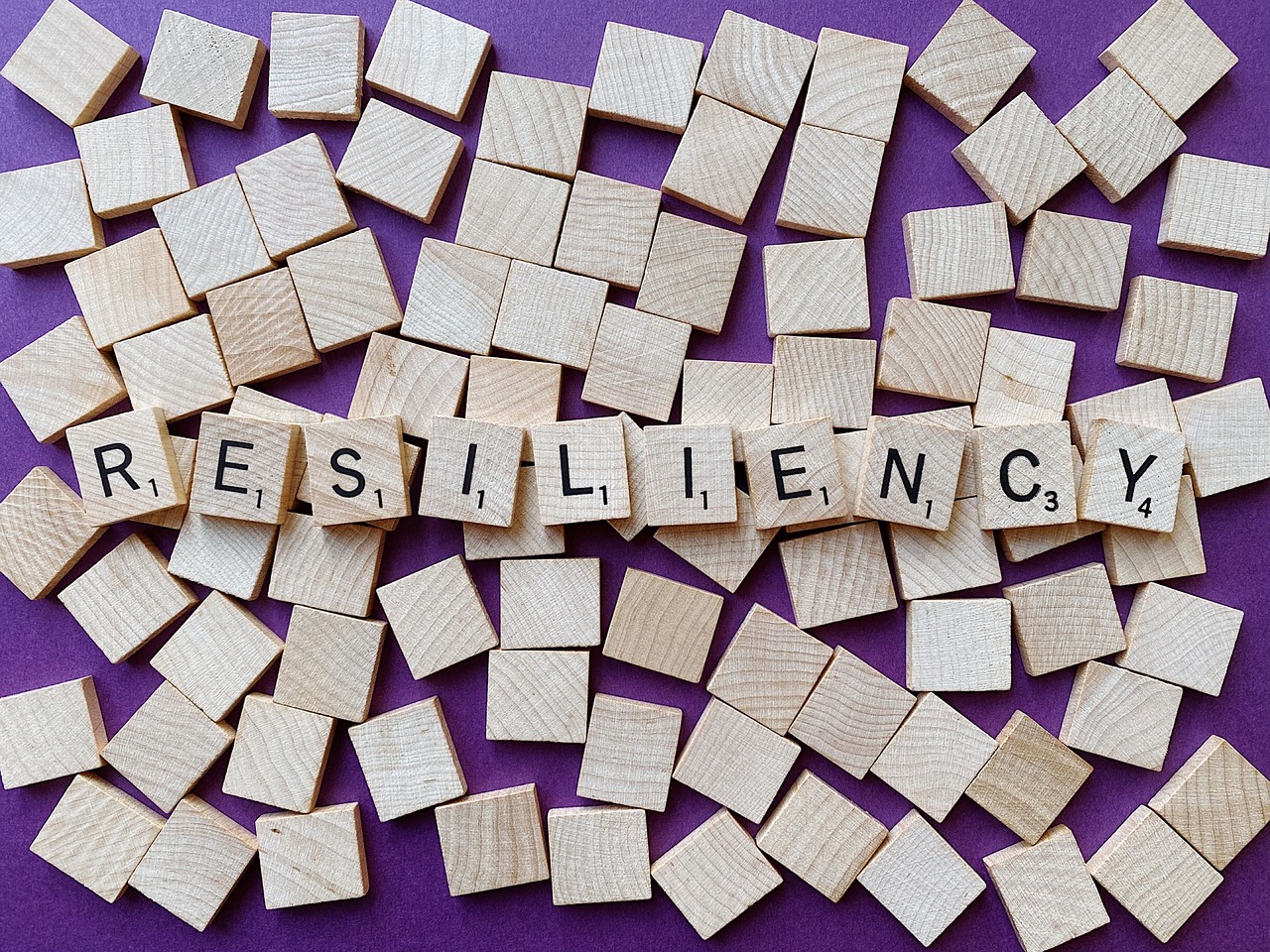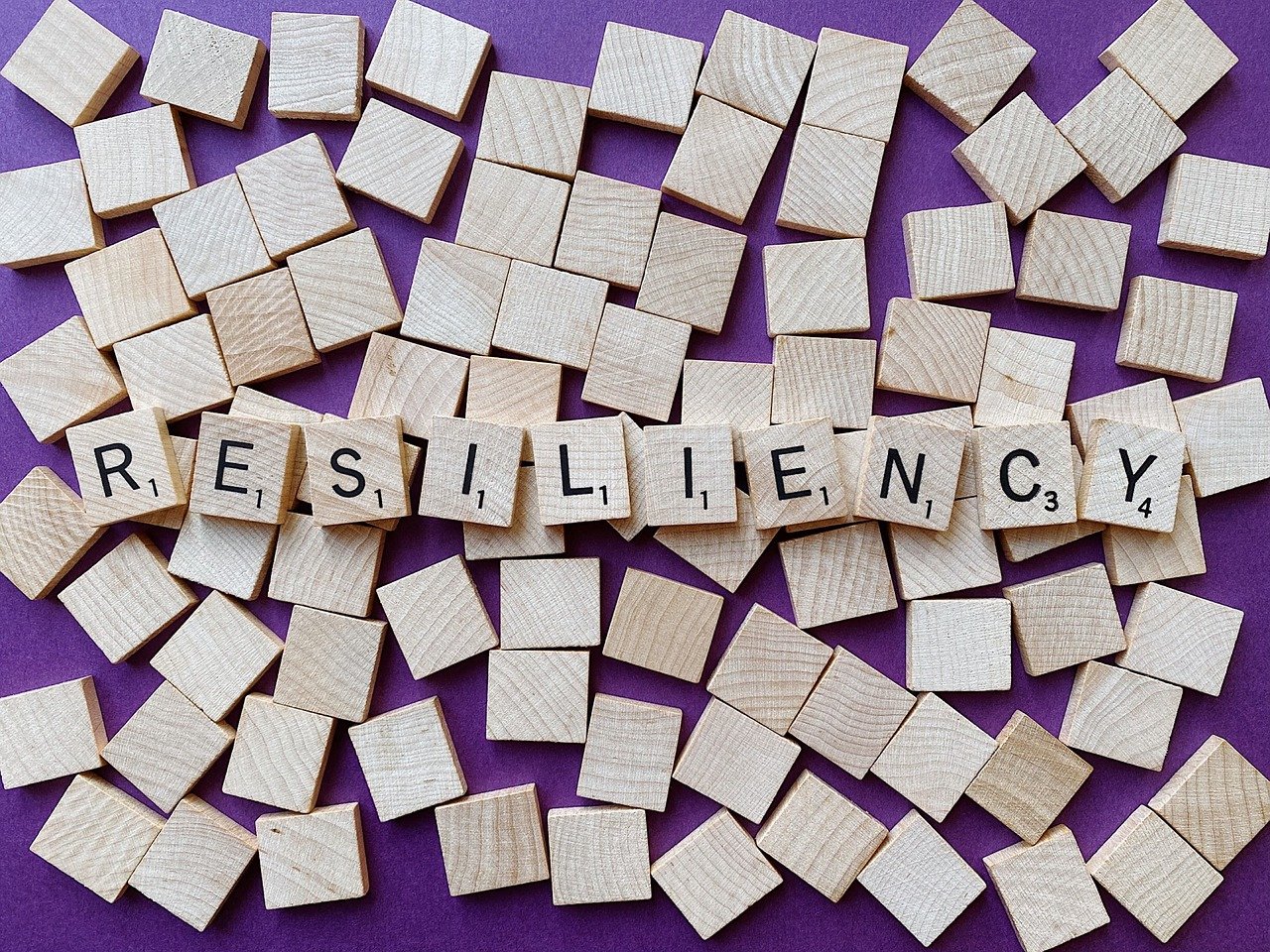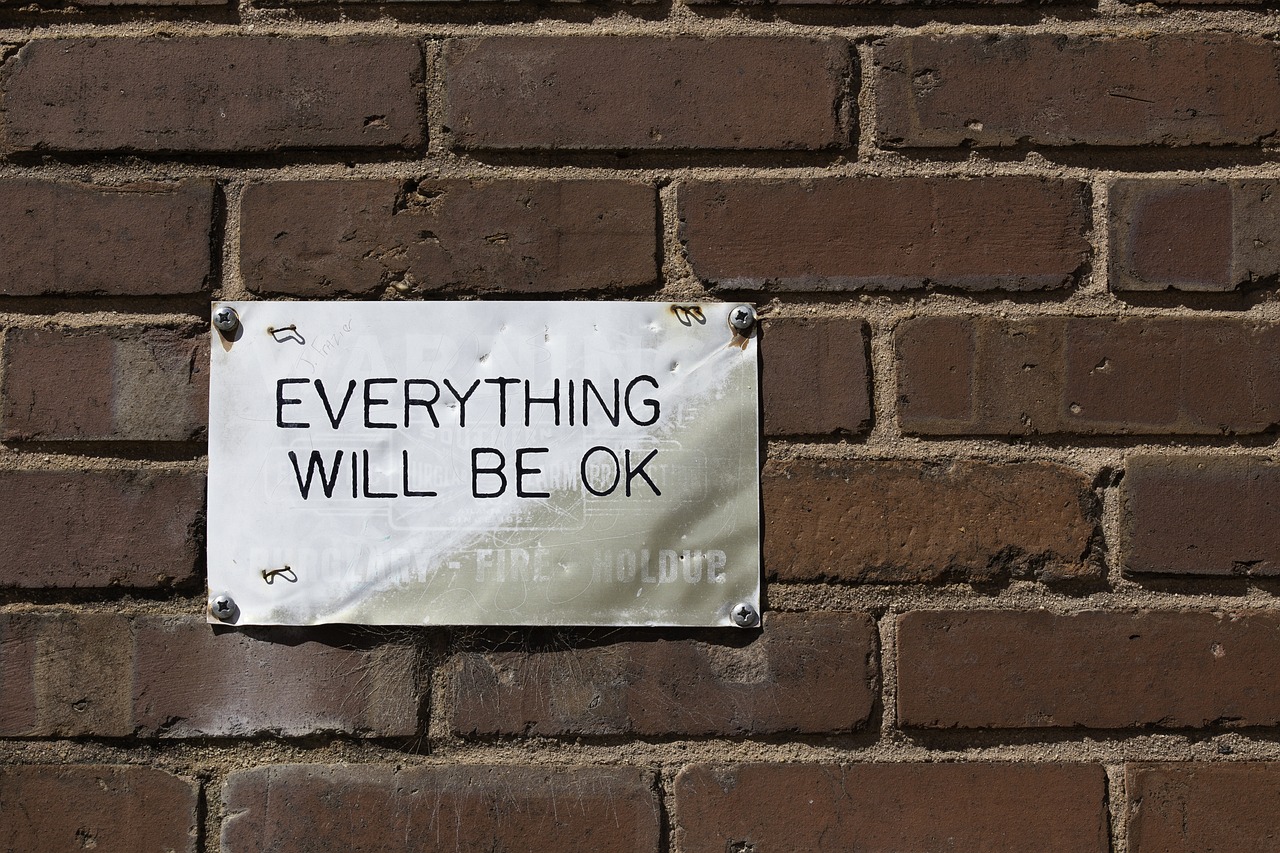Building Resilience - Combating Life's Ups and Downs
Life is a rollercoaster, isn’t it? One moment you’re soaring high, and the next, you’re plummeting down into the depths of uncertainty and stress. This unpredictable nature of life can be overwhelming, but here’s the kicker: building resilience can transform those daunting drops into manageable bumps along the way. Resilience isn’t just about bouncing back; it’s about growing through the challenges we face and emerging stronger than before. In this article, we will dive deep into what resilience is, why it matters, and how you can cultivate it in your life.
Why should we care about resilience? Well, think of it as your emotional armor. It equips you to handle life’s inevitable hardships and enables you to navigate through them with grace. Resilience plays a pivotal role in maintaining our mental health, enhancing our relationships, and improving our overall well-being. When faced with adversity, resilient individuals are more likely to maintain a positive outlook, manage stress effectively, and recover from setbacks. They are the ones who can turn a crisis into a stepping stone for personal and professional growth.
Before you can build resilience, it’s crucial to identify what’s rattling your cage. Stressors are the triggers that can undermine your emotional stability, and recognizing them is the first step toward fortifying your resilience. Common stressors include work pressures, family dynamics, financial worries, and health concerns. Each of these stressors can have a profound impact on our mental and emotional state, making it essential to pinpoint what’s weighing you down.
Stressors can be categorized into various types, and understanding these can help you develop effective coping strategies. Here’s a quick breakdown:
- Daily Hassles: These are the minor irritations that accumulate over time, like traffic jams or a missed bus.
- Major Life Events: Significant changes such as losing a loved one or switching careers can shake your foundation.
- Chronic Stress: Ongoing stress from long-term situations can erode your resilience and lead to burnout.
Think about your day-to-day life. Those pesky little annoyances—like a spilled coffee or a never-ending to-do list—can pile up and create a mountain of stress. While they may seem trivial, daily hassles can chip away at your mental health if not addressed. To combat these nuisances, practice mindfulness techniques, take breaks to breathe, and prioritize tasks effectively.
When life throws a curveball—like a job loss or a breakup—it can feel like the ground has shifted beneath your feet. These major life events test your resilience in ways you never imagined. It’s essential to acknowledge your feelings during such times and lean on your support system. Remember, it’s okay to grieve what you’ve lost and to seek help in navigating through the storm.
Chronic stress is like a slow leak in a tire; it may not seem urgent at first, but it can lead to a blowout if left unchecked. The long-term effects of ongoing stress can be detrimental to your resilience, leading to anxiety, depression, and physical health issues. To mitigate its impact, consider incorporating regular exercise, relaxation techniques, and healthy lifestyle choices into your routine.
Building resilience isn’t a one-time event; it’s a continuous process of developing specific skills. Think of it as training for a marathon—you don’t just wake up one day ready to run 26 miles. Here are some practical strategies to enhance your emotional strength and adaptability:
Mindfulness can be a game-changer when it comes to resilience. By staying present and focused, you can reduce anxiety and enhance your ability to cope with stress. Techniques such as meditation, deep breathing exercises, and yoga can help you cultivate a sense of calm amidst chaos.
Ever heard the saying, “Your thoughts create your reality”? Well, it’s true! Adopting a positive mindset is essential for resilience. Reframing negative thoughts can empower you to see challenges as opportunities for growth. Instead of saying, “I can’t handle this,” try telling yourself, “I’m learning and growing through this experience.”
Resilience doesn’t mean going it alone. Building a strong support network is vital for weathering life’s storms. Surround yourself with people who uplift you and provide a safe space to share your struggles. Meaningful relationships can be a source of strength and comfort during tough times.
Sometimes, the challenges we face can feel insurmountable, and that’s when seeking professional help can be crucial. Therapy or counseling can provide you with the tools and strategies needed to strengthen your resilience and navigate life’s ups and downs effectively.
Don’t underestimate the power of community! Local organizations and support groups can offer invaluable resources and connections. Whether it’s a support group for parents, a mental health workshop, or community events, tapping into these resources can enhance your resilience and provide a sense of belonging.
Q: What is resilience?
A: Resilience is the ability to bounce back from adversity and adapt positively to challenges.
Q: How can I build resilience?
A: You can build resilience by practicing mindfulness, maintaining a positive mindset, seeking support, and developing coping strategies.
Q: Why is resilience important?
A: Resilience is important because it helps you manage stress, enhances your mental health, and enables personal and professional growth.

The Importance of Resilience
Understanding why resilience is crucial can empower individuals to face adversity head-on. Life is a rollercoaster of ups and downs, and having the ability to bounce back from challenges is what separates those who thrive from those who merely survive. Resilience isn't just a buzzword; it's a vital skill that can enhance your mental health, strengthen your relationships, and improve your overall well-being.
When we talk about resilience, we’re not just referring to the ability to withstand stress; we’re talking about the capacity to adapt and even grow stronger through life's trials. Think of resilience as a rubber band; it stretches but always returns to its original shape. This flexibility allows individuals to cope with stress more effectively, leading to better emotional regulation and a more positive outlook on life.
Research has shown that resilient individuals tend to experience lower levels of anxiety and depression. They are often better equipped to handle setbacks, which can lead to improved performance in both personal and professional spheres. Here are some key benefits of building resilience:
- Improved Mental Health: Resilient people are less likely to succumb to mental health issues, as they can manage stress more effectively.
- Stronger Relationships: Resilience fosters better communication and understanding, which enriches personal connections.
- Enhanced Problem-Solving Skills: Those who are resilient approach challenges with a solution-focused mindset, making them more adept at overcoming obstacles.
- Greater Overall Well-Being: Resilience contributes to a more fulfilling life, allowing individuals to enjoy both the highs and lows with grace.
In essence, resilience acts as a buffer against the inevitable storms of life. It encourages a proactive approach to challenges, enabling individuals to not just survive but thrive. So, how do we cultivate this invaluable trait? It begins with the understanding that resilience is not an inherent quality; it’s a skill that can be developed over time through practice and perseverance.
As we delve deeper into the concept of resilience, it becomes clear that it’s not just about enduring tough times but also about emerging from them with newfound strength and wisdom. This mindset shift can transform how we view challenges, turning them from daunting obstacles into opportunities for growth. Are you ready to embrace resilience and unlock your full potential?

Recognizing Stressors
In our fast-paced lives, it's easy to overlook the factors that contribute to our stress levels. Recognizing stressors is the first step toward building resilience. Stressors are essentially anything that disrupts our mental peace, and they can come from various sources. Understanding these sources allows us to tackle them head-on rather than letting them pile up like laundry waiting to be folded. Have you ever felt overwhelmed, only to realize it was a combination of small annoyances? That's the power of stressors at work. By identifying them, we can better manage our responses and cultivate a more resilient mindset.
Stressors can be broadly categorized into three types: daily hassles, major life events, and chronic stress. Each type has unique characteristics and impacts on our mental and emotional well-being. Daily hassles might include the little things that annoy us, like traffic jams, long lines at the grocery store, or a colleague's incessant chatter. While they may seem trivial, these small irritations can accumulate, leading to significant stress over time. On the other hand, major life events, such as the death of a loved one, a divorce, or a job loss, can shake us to our core. These events challenge our resilience and require us to adapt quickly to new realities.
Chronic stress is perhaps the most insidious of all. It's like a slow leak in a tire; you may not notice it immediately, but over time, it can lead to a complete blowout. Chronic stress often stems from ongoing issues, such as a demanding job, financial difficulties, or a toxic relationship. The long-term effects of chronic stress can be detrimental, leading to anxiety, depression, and even physical health issues. It's crucial to recognize these stressors early on and take proactive steps to mitigate their impact.
So, how do we go about recognizing these stressors? Here are some strategies:
- Self-Reflection: Take time each day to reflect on what made you feel stressed. Keeping a journal can be an effective way to track patterns.
- Talk it Out: Sometimes, just discussing your feelings with a friend or family member can help clarify what’s bothering you.
- Mindfulness: Practicing mindfulness can help you stay present and aware of your feelings, making it easier to identify stressors.
In conclusion, recognizing stressors is not just about identifying what's wrong; it's about taking control of your mental landscape. By understanding the sources of your stress, you empower yourself to respond more effectively and build resilience. Remember, awareness is the first step toward change, and as you learn to navigate life's challenges, you'll find that you can bounce back stronger than ever.

Types of Stressors
Stressors come in various shapes and sizes, influencing our lives in ways we may not even recognize. Understanding the different types of stressors is essential for building resilience, as it allows us to identify and tackle them effectively. Stressors can be broadly categorized into three main types: daily hassles, major life events, and chronic stress. Each of these categories presents unique challenges and requires tailored coping strategies.
Daily hassles are those minor irritations that we encounter regularly. You know, the little things that can sometimes feel like they accumulate into a mountain of frustration—like getting stuck in traffic, missing your morning coffee, or dealing with a difficult coworker. While these might seem trivial on their own, they can add up and significantly impact our mental health if not managed properly. Research indicates that consistently experiencing these daily hassles can lead to increased anxiety and lower overall well-being. To combat this, it’s important to develop strategies to manage these irritations, such as practicing mindfulness or engaging in stress-relief activities.
Then we have major life events, which can be game-changers in our emotional landscape. These are significant occurrences that can shake the very foundations of our lives, such as the loss of a loved one, a divorce, or a career change. Such events often test our resilience and can lead to feelings of grief, uncertainty, and even depression. Coping with major life events requires a robust support system and often necessitates taking time to process emotions and adjust to new realities. It’s crucial to acknowledge these feelings rather than suppress them, as doing so can lead to a healthier recovery and adaptation.
Lastly, there’s chronic stress, which is often the most insidious form of stress. This type of stress doesn’t stem from a single event but rather from ongoing pressures, such as a demanding job, financial difficulties, or unhealthy relationships. Chronic stress can wear down our mental and physical health over time, leading to serious health issues like anxiety disorders, depression, and heart disease. To mitigate the effects of chronic stress, it’s vital to recognize its sources and find effective coping mechanisms, such as regular exercise, therapy, or engaging in hobbies that bring joy.
In summary, understanding the types of stressors we face is a vital step in building resilience. By recognizing whether we are dealing with daily hassles, major life events, or chronic stress, we can better equip ourselves with the tools and strategies needed to navigate life’s challenges. Remember, it’s not just about enduring stress but learning to thrive despite it.

Daily Hassles
Life is often a rollercoaster ride of ups and downs, but sometimes, it’s the small bumps in the road that can really throw us off course. These —the minor annoyances that we encounter every day—can accumulate and create a significant impact on our mental health. Think about it: how often do you find yourself feeling overwhelmed by trivial matters? Maybe it’s the traffic jam on your way to work, the overflowing email inbox, or that never-ending to-do list. Each of these seemingly insignificant irritations can add up, leading to stress and frustration.
To truly understand the effect of daily hassles, let’s consider some common examples:
- Long commutes
- Workplace conflicts
- Household chores
- Technology issues
- Financial worries
Each of these stressors can seem minor on its own, but when they pile up, they can feel like a mountain. It’s crucial to recognize that these daily challenges are not just inconveniences; they can chip away at our resilience if we let them. The key is to develop strategies to manage these hassles effectively. For instance, practicing time management can help alleviate the pressure of that overflowing to-do list. Setting aside specific times to tackle emails or chores can create a sense of control and reduce feelings of being overwhelmed.
Another effective strategy is to cultivate mindfulness. By staying present and acknowledging your feelings without judgment, you can create a buffer against the stress caused by daily annoyances. When you find yourself caught in a frustrating situation, take a deep breath and remind yourself that it’s just a moment—much like a brief rain shower that will soon pass. This shift in perspective can help you navigate through the chaos with a bit more grace.
Moreover, it’s essential to prioritize self-care. Taking time out of your busy schedule to engage in activities that bring you joy—whether it’s reading a book, going for a walk, or enjoying a hobby—can recharge your emotional batteries. When you feel good about yourself, you’re better equipped to handle life’s little bumps.
In conclusion, while daily hassles are an inevitable part of life, they don’t have to derail your resilience. By recognizing these stressors and implementing practical strategies to manage them, you can maintain your mental strength and adaptability. Remember, it’s not about eliminating the hassles; it’s about how you respond to them that truly counts.
Q: What are some examples of daily hassles?
A: Daily hassles can include long commutes, workplace conflicts, household chores, technology issues, and financial worries.
Q: How can I manage daily hassles effectively?
A: Effective management strategies include practicing time management, cultivating mindfulness, and prioritizing self-care.
Q: Why is it important to address daily hassles?
A: Addressing daily hassles is crucial because they can accumulate and significantly impact your mental health and overall resilience.

Major Life Events
Life is a rollercoaster, isn't it? One moment, you’re cruising along, and the next, you’re faced with a major life event that shakes your world. These events can range from joyous occasions like weddings and the birth of a child to more challenging experiences such as the loss of a loved one or a job change. Each of these significant milestones can test our resilience in profound ways. When we encounter such pivotal moments, it’s crucial to understand how they can impact our mental and emotional well-being.
Major life events often bring about a whirlwind of emotions. For instance, while the excitement of starting a new job can be thrilling, it can also come with stress and anxiety about fitting in and meeting expectations. On the flip side, dealing with the death of a loved one can leave you feeling lost and overwhelmed. These events can create a ripple effect, influencing not just our mood but also our relationships and daily functioning.
To navigate through these turbulent times, it’s essential to acknowledge the feelings that arise. Ignoring or suppressing emotions can lead to long-term issues, such as chronic stress or depression. Instead, consider these strategies to help cope with major life events:
- Allow Yourself to Grieve: Whether it’s a job loss or the end of a relationship, give yourself permission to feel sad. Grieving is a natural response and can help you process your emotions.
- Seek Support: Reach out to friends, family, or support groups. Sharing your experiences can lighten the burden and provide comfort.
- Establish Routines: Maintaining a daily routine can provide a sense of normalcy amidst chaos. It helps ground you and keeps you focused on the present.
Additionally, it’s important to remember that resilience is not about being unaffected by challenges; it’s about how we respond to them. Developing coping mechanisms can empower you to bounce back stronger than before. Consider journaling your thoughts, engaging in physical activity, or practicing mindfulness to help ease the emotional load.
In essence, major life events are significant turning points that can either break us or build us up. By recognizing the impact these events have on our lives and actively seeking ways to cope, we can cultivate resilience. It’s about transforming challenges into opportunities for growth. So, the next time life throws you a curveball, remember: you have the strength to adapt and thrive.

Chronic Stress
Chronic stress is like a relentless storm that never seems to pass. Unlike the occasional rain shower of daily stressors, chronic stress is the kind of weather that lingers, affecting every aspect of your life. It’s that nagging feeling that something’s always off, whether it’s at work, home, or in your relationships. When stress becomes a constant companion, it can wreak havoc on your mental and physical health, leading to a myriad of issues such as anxiety, depression, and even heart disease. Understanding the long-term effects of chronic stress is crucial for developing strategies to combat it.
One of the most insidious aspects of chronic stress is that it often goes unnoticed until it has already taken a toll. You might find yourself feeling exhausted, irritable, or even physically unwell without realizing that these symptoms are linked to ongoing stress. To illustrate this, consider the following table that outlines some common symptoms and their potential impacts:
| Symptoms of Chronic Stress | Potential Impacts |
|---|---|
| Fatigue | Decreased productivity and motivation |
| Irritability | Strained relationships and communication issues |
| Physical ailments (e.g., headaches, stomach issues) | Increased healthcare costs and time off work |
| Anxiety and depression | Lower quality of life and potential for isolation |
So, how do we combat this relentless storm? The first step is recognizing the signs of chronic stress in your life. Often, this requires honest self-reflection and perhaps even feedback from those around you. Once you identify the stressors contributing to your chronic stress, you can take proactive measures to address them. This might involve setting boundaries at work, improving time management skills, or even seeking professional help.
Moreover, managing chronic stress is not a one-size-fits-all approach. Different strategies work for different people. Some may find solace in mindfulness practices, while others might benefit from physical exercise or engaging in hobbies. The key is to find what resonates with you and make it a regular part of your routine. Remember, it’s about building a resilient mindset that can weather the storms of life.
In conclusion, chronic stress is a significant barrier to resilience and overall well-being. By acknowledging its presence and actively seeking ways to mitigate its effects, you can reclaim your life and foster a healthier, more balanced existence. After all, life will always have its ups and downs, but with the right tools and mindset, you can navigate through even the toughest of times.
- What is chronic stress? Chronic stress is a prolonged state of stress that can negatively impact your mental and physical health.
- What are the symptoms of chronic stress? Symptoms can include fatigue, irritability, physical ailments, anxiety, and depression.
- How can I manage chronic stress? Strategies include mindfulness practices, setting boundaries, and seeking professional help if necessary.
- Can chronic stress be completely eliminated? While it may not be possible to eliminate all stress, you can learn to manage it effectively to reduce its impact on your life.

Building Resilience Skills
Building resilience is like strengthening a muscle; the more you work on it, the stronger it becomes. It’s not just about bouncing back after a setback but also about growing and thriving despite life's challenges. So, how do we cultivate these essential resilience skills? Let’s dive into some practical strategies that can help you enhance your emotional strength and adaptability.
One of the most effective ways to build resilience is through mindfulness practices. Mindfulness is all about being present in the moment and accepting your thoughts and feelings without judgment. Imagine standing in a storm, where the winds of anxiety and stress are howling around you. Mindfulness acts as your sturdy umbrella, providing shelter from the chaos. Techniques such as meditation, deep breathing exercises, and yoga can help you stay grounded. For instance, dedicating just a few minutes a day to focused breathing can significantly reduce stress levels and improve your ability to cope with difficult situations.
Another crucial skill is positive thinking. It’s easy to fall into a negative thought spiral, especially when faced with challenges. However, by actively reframing those thoughts, you can change your emotional response and improve your resilience. Think of negative thoughts as weeds in a garden; if you don’t pull them out, they’ll take over. Instead, cultivate a garden of positivity by replacing negative thoughts with affirmations and constructive self-talk. For example, rather than saying, “I can’t handle this,” try reframing it to, “I will find a way to overcome this challenge.” This shift in mindset not only boosts your confidence but also enhances your problem-solving abilities.
Additionally, it’s essential to develop strong problem-solving skills. Life is full of puzzles, and learning how to approach them effectively can make all the difference. When faced with a challenge, break it down into manageable parts. Ask yourself, “What can I control?” and “What are my options?” By taking a proactive approach, you empower yourself to tackle issues head-on rather than feeling overwhelmed. Practicing this skill regularly can transform your perspective on challenges, making them feel less daunting.
Building resilience isn’t just about individual efforts; it’s also about creating a supportive environment. Surrounding yourself with positive influences can significantly enhance your resilience. Think of your support network as a safety net; it catches you when you fall and helps you get back on your feet. Cultivating meaningful relationships with friends, family, or colleagues can provide emotional support and encouragement during tough times. Don’t hesitate to reach out and share your experiences; you might be surprised at how much strength you can draw from those around you.
Lastly, remember that resilience is a journey, not a destination. It requires ongoing effort and practice. Just like any skill, the more you work on it, the more natural it becomes. Embrace the ups and downs of life, knowing that each experience contributes to your growth. Celebrate your victories, no matter how small, and learn from your setbacks. By incorporating these resilience-building skills into your daily life, you'll find yourself becoming more adaptable and better equipped to handle whatever life throws your way.
- What is resilience? Resilience is the ability to bounce back from adversity and adapt to challenging circumstances.
- How can mindfulness help build resilience? Mindfulness helps individuals stay present and manage stress, leading to improved emotional regulation and resilience.
- Why is positive thinking important for resilience? Positive thinking allows individuals to reframe challenges and adopt a proactive approach, enhancing their ability to cope with difficulties.
- Can building resilience improve mental health? Yes, resilience can lead to better mental health outcomes by providing individuals with tools to manage stress and adversity effectively.

Mindfulness Practices
In today’s fast-paced world, where distractions are just a click away, practicing mindfulness has become more essential than ever. Mindfulness is the art of being present in the moment, fully engaging with your surroundings, thoughts, and feelings without judgment. It’s like putting on a pair of glasses that help you see life’s details more clearly—suddenly, the mundane becomes extraordinary. By incorporating mindfulness practices into your daily routine, you can significantly enhance your resilience against life's challenges.
One effective way to cultivate mindfulness is through meditation. Even just a few minutes a day can make a world of difference. Picture this: you wake up in the morning, and instead of diving straight into your emails or social media, you take a moment to sit quietly, focusing on your breath. This simple act can ground you, providing a buffer against the chaos that may follow. As you breathe in and out, allow your thoughts to float by like clouds in the sky—acknowledge them, but don’t let them take control. Over time, this practice can help you develop a greater sense of calm and clarity.
Another mindfulness technique is body scanning. This practice involves mentally scanning your body for tension and discomfort. You start from your toes and work your way up to the crown of your head, paying attention to each part. Are your shoulders tense? Is your jaw clenched? By identifying these areas, you can consciously release tension, promoting relaxation and awareness. This practice not only helps in reducing stress but also enhances your connection with your body, allowing you to respond to stressors more effectively.
Mindfulness doesn’t always have to be a formal practice, though. You can incorporate it into your daily activities. For instance, when you eat, try to savor each bite. Notice the flavors, textures, and aromas of your food. This practice transforms a routine activity into a mindful experience, encouraging you to appreciate the moment. Similarly, during a walk, pay attention to the sensations of your feet hitting the ground, the sounds around you, and the sights you encounter. Engaging your senses can help you stay rooted in the present, making it easier to handle whatever life throws your way.
To further enhance your mindfulness journey, consider joining a local class or group. Many communities offer workshops on mindfulness and meditation, providing a supportive environment to learn and grow. Connecting with others who share similar goals can foster a sense of belonging and motivation. You might even find that discussing your experiences with mindfulness can deepen your understanding and commitment to the practice.
In summary, integrating mindfulness practices into your life can be a game-changer in building resilience. Whether through meditation, body scanning, or simply being present during daily activities, mindfulness equips you with the tools to navigate life's ups and downs with grace. As you become more aware of your thoughts and feelings, you’ll find it easier to respond rather than react, ultimately leading to a more balanced and fulfilling life.
- What is mindfulness?
Mindfulness is the practice of being fully present and engaged in the moment, without judgment. - How can I start practicing mindfulness?
You can start with simple practices like meditation, body scanning, or mindful eating. - How often should I practice mindfulness?
Even a few minutes daily can be beneficial. Consistency is key to developing mindfulness. - Can mindfulness help with stress?
Yes, mindfulness practices can significantly reduce stress and enhance emotional resilience.

Positive Thinking
isn’t just a feel-good mantra; it’s a powerful tool that can transform your life. Imagine navigating through a stormy sea in a tiny boat. If you believe you can reach the shore, you’re more likely to paddle harder and find your way. Conversely, if you expect to sink, you might not even try to steer. This analogy perfectly illustrates how a positive mindset can significantly influence our resilience in the face of challenges.
Research shows that individuals who cultivate a positive outlook tend to cope better with stress and bounce back from setbacks more effectively. It’s like having a mental shield that protects you from the harsh winds of adversity. But how do we foster this positive thinking? It starts with reframing negative thoughts. Instead of saying, “I can’t handle this,” try shifting your perspective to, “I’m learning how to manage this situation.” This slight change in wording can open up a world of possibilities and empower you to take action.
Additionally, incorporating daily practices can help reinforce positive thinking:
- Gratitude Journaling: Spend a few minutes each day writing down things you’re grateful for. This simple act can shift your focus from what’s wrong to what’s right in your life.
- Affirmations: Positive affirmations can help reshape your self-image. Phrases like “I am capable” or “I am worthy” can boost your confidence and resilience.
- Surround Yourself with Positivity: Engage with uplifting people and consume positive content—whether it’s books, podcasts, or videos. This can create an environment that nurtures your positive mindset.
Moreover, it’s essential to recognize the power of language in shaping our thoughts. The words we use can either uplift us or bring us down. For instance, replacing “I have to” with “I choose to” empowers you to take control of your circumstances. This subtle shift in language can make a significant difference in how you perceive challenges.
Lastly, remember that cultivating a positive mindset doesn’t mean ignoring reality or pretending everything is perfect. It’s about acknowledging the difficulties while choosing to focus on potential solutions and the silver linings. Life will always throw curveballs, but with a resilient and positive outlook, you can hit those challenges out of the park.
- What is positive thinking? Positive thinking is the practice of focusing on the good in any given situation, which can enhance your resilience and coping mechanisms.
- How can I develop a positive mindset? You can develop a positive mindset by practicing gratitude, using affirmations, surrounding yourself with positive influences, and reframing negative thoughts.
- Is positive thinking the same as being unrealistic? No, positive thinking involves acknowledging challenges while maintaining hope and focusing on solutions, rather than ignoring reality.

Seeking Support
When life throws its curveballs, one of the most effective ways to build resilience is by seeking support. Think of it like having a sturdy umbrella on a rainy day; it won’t stop the rain, but it will keep you dry and comfortable while you navigate through it. Building a robust support network can significantly enhance your ability to cope with stress and adversity. But what does it mean to seek support, and how can you effectively do it?
First and foremost, social connections are vital. Humans are inherently social beings, and having a network of friends, family, or colleagues can provide the emotional backing you need during tough times. When you share your struggles, you not only lighten your emotional load but also gain different perspectives that can help you cope better. It’s like having a team of cheerleaders in your corner, ready to lift you up when you’re feeling down.
To build these connections, consider reaching out to those around you. You might be surprised at how willing people are to listen and offer support. Here are a few ways to cultivate meaningful relationships:
- Engage in community activities: Joining clubs, volunteering, or participating in local events can help you meet new people and foster connections.
- Stay in touch: Regularly check in with friends and family, even if it’s just a quick text or call. These small gestures can strengthen bonds.
- Be open: Share your feelings and experiences with those you trust. Vulnerability can deepen relationships and encourage others to open up.
Sometimes, however, personal connections may not be enough, and that’s where professional help comes into play. Seeking therapy or counseling can be a game-changer for many. A mental health professional can provide you with tools and strategies tailored to your specific needs, helping you build resilience in a structured way. If you’re unsure about when to seek professional help, consider the following signs:
- Feeling overwhelmed by daily tasks.
- Experiencing persistent sadness or anxiety.
- Struggling to cope with major life changes.
When you decide to seek help, remember that it’s a sign of strength, not weakness. Just like an athlete trains with a coach to improve performance, you can work with a therapist to enhance your emotional resilience. Therapy can provide a safe space to explore your feelings and develop coping strategies that suit your lifestyle.
Moreover, don’t overlook the importance of community resources. Many local organizations and support groups are available to assist those in need. These resources can range from support groups for specific issues, like grief or addiction, to workshops that teach coping skills and resilience-building strategies. Engaging with community resources can not only provide support but also help you connect with others who are facing similar challenges. Here’s a quick look at some types of community resources you might consider:
| Resource Type | Description |
|---|---|
| Support Groups | Peer-led groups that provide a safe space to share experiences and coping strategies. |
| Workshops | Programs that teach skills such as stress management, mindfulness, and emotional regulation. |
| Hotlines | 24/7 support from trained professionals for immediate assistance. |
In conclusion, seeking support is an essential component of building resilience. Whether through personal connections, professional help, or community resources, remember that you don’t have to go through tough times alone. Just like a sturdy bridge that withstands the test of time, a strong support network can help you navigate life’s ups and downs with greater ease.
Q: How do I know if I need support?
A: If you find yourself feeling overwhelmed, anxious, or unable to cope with daily life, it may be time to seek support.
Q: What if I don’t have anyone to talk to?
A: Consider reaching out to a mental health professional or joining community groups where you can meet new people.
Q: Is seeking help a sign of weakness?
A: Absolutely not! Seeking help is a brave step towards improving your mental health and resilience.

Professional Help
Sometimes, navigating life's challenges can feel like trying to find your way through a dense fog—confusing and overwhelming. This is where can shine a light on your path. Seeking therapy or counseling is not a sign of weakness; rather, it’s a bold step towards understanding yourself better and building your resilience. Mental health professionals are equipped with the tools and insights that can help you untangle the complex web of emotions and stressors that life throws your way.
When considering professional help, it’s important to recognize the different types of mental health professionals available. Each specializes in various aspects of mental health and can offer unique support tailored to your needs. Here’s a quick overview:
| Type of Professional | Specialization |
|---|---|
| Psychologist | Focuses on therapy and psychological assessments |
| Psychiatrist | Can prescribe medication and provide therapy |
| Licensed Counselor | Offers guidance and support for various life issues |
| Social Worker | Helps with practical issues and access to resources |
Before you dive into therapy, it’s a good idea to reflect on what you hope to achieve. Are you looking to manage anxiety, cope with a significant life change, or simply gain a deeper understanding of your emotions? Having clear goals can help you communicate effectively with your therapist and ensure you get the most out of your sessions.
Additionally, don’t hesitate to ask questions when you first meet with a mental health professional. Inquire about their approach to therapy, their experience with issues similar to yours, and what you can expect from the process. Remember, you’re not just a client; you’re a partner in this journey towards resilience.
Finally, remember that building resilience is a process, and it often requires time and patience. As you work with a professional, you’ll likely encounter various techniques and coping strategies that can empower you to face life’s ups and downs with greater confidence. Whether it’s through cognitive behavioral therapy, mindfulness practices, or simply having a safe space to express your feelings, professional help can be a game-changer in your journey towards emotional strength.
In conclusion, seeking professional help is a proactive step in combating life’s challenges. It’s about equipping yourself with the right tools to build resilience and improve your overall well-being. So, don’t hesitate—reach out and take that important step towards a healthier, more resilient you!
- How do I know if I need professional help? If you find that your daily life is affected by stress, anxiety, or emotional turmoil, it may be time to seek assistance.
- What should I expect during my first therapy session? Typically, the first session involves discussing your background, current issues, and setting goals for therapy.
- How long does therapy usually last? The duration varies based on individual needs, but many people attend sessions for several weeks or months.
- Is therapy confidential? Yes, therapists are bound by confidentiality laws, which means what you share in sessions is private.

Community Resources
When life throws curveballs, it’s essential to remember that you don’t have to navigate those challenges alone. Community resources can be a lifeline, providing support and guidance when you need it most. Think of these resources as a safety net, catching you when you stumble and helping you regain your footing. From local organizations to support groups, the options available can significantly bolster your resilience.
Community resources can take many forms, each designed to address specific needs and challenges. For instance, mental health organizations often offer counseling services, workshops, and hotlines for immediate support. These services are crucial for anyone feeling overwhelmed by stress or anxiety. Additionally, community centers may host events that promote social interaction, which can help combat feelings of isolation and loneliness.
One of the most significant benefits of engaging with community resources is the opportunity to connect with others who share similar experiences. This sense of belonging can be incredibly empowering. Consider joining a support group that focuses on your particular challenges, whether it be grief, addiction, or chronic illness. Here, you can share your story, listen to others, and learn coping strategies that have worked for them. It’s like finding a tribe that understands your journey.
Moreover, many communities offer workshops and training sessions focused on building skills that enhance resilience. These may include stress management techniques, mindfulness practices, and even physical wellness programs. Participating in such activities not only provides practical tools but also fosters a sense of accomplishment and personal growth.
To help you navigate these resources, here’s a quick overview of what you might find:
| Resource Type | Description | Example |
|---|---|---|
| Mental Health Services | Counseling and support for emotional well-being | Local therapy clinics, hotlines |
| Support Groups | Peer-led groups for shared experiences | Grief support groups, addiction recovery |
| Workshops | Skill-building sessions to enhance resilience | Stress management, mindfulness training |
| Community Events | Social gatherings to foster connections | Health fairs, community picnics |
In summary, tapping into community resources can make a world of difference in your journey toward resilience. Whether you’re looking for emotional support, practical skills, or just a friendly face, these resources are there to help you thrive. Don’t hesitate to reach out and explore what’s available in your area; you might be surprised by the wealth of support waiting for you.
Q: How can I find community resources in my area?
A: You can start by searching online for local mental health organizations, community centers, or support groups. Websites like 211.org can also guide you to resources based on your needs.
Q: Are community resources free?
A: Many community resources offer free or sliding scale services, especially non-profit organizations. It’s best to inquire directly about any costs involved.
Q: Can I participate in multiple resources at once?
A: Absolutely! Engaging with multiple resources can provide a well-rounded support system, helping you address different aspects of your resilience.
Q: What if I don’t feel comfortable in a group setting?
A: That’s completely understandable. Many resources offer one-on-one counseling or virtual support options, allowing you to seek help in a way that feels more comfortable for you.
Frequently Asked Questions
- What is resilience, and why is it important?
Resilience is the ability to bounce back from setbacks and adapt to change. It's crucial because it empowers you to face life's challenges with a stronger mindset, improving your mental health, relationships, and overall well-being.
- What are some common stressors that affect resilience?
Common stressors include daily hassles like traffic jams and work deadlines, major life events such as job loss or divorce, and chronic stress from ongoing issues like financial problems or health concerns. Identifying these stressors is the first step in building resilience.
- How can I manage daily hassles to improve my resilience?
To manage daily hassles, try prioritizing tasks, practicing time management, and incorporating relaxation techniques like deep breathing or short breaks. These strategies can help prevent minor irritations from accumulating and affecting your mental health.
- What are some effective mindfulness practices for resilience?
Effective mindfulness practices include meditation, deep breathing exercises, and mindful walking. These techniques help you stay grounded, reduce stress, and enhance your emotional strength during challenging times.
- How does positive thinking contribute to resilience?
Positive thinking helps you reframe negative thoughts and view challenges as opportunities for growth. By adopting a positive mindset, you can develop better coping mechanisms, which ultimately strengthens your resilience.
- Why is seeking support important for building resilience?
Seeking support is vital because it provides emotional comfort and practical assistance during tough times. Building a strong support network can help you cope better with stressors and enhance your overall resilience.
- When should I consider seeking professional help for resilience?
You should consider seeking professional help if you find it difficult to cope with stress, experience persistent feelings of sadness or anxiety, or feel overwhelmed by life's challenges. A therapist can provide guidance and support to strengthen your resilience.
- What community resources can help enhance resilience?
Community resources such as local support groups, mental health organizations, and workshops can provide valuable assistance. These resources can help you connect with others facing similar challenges and offer tools for building resilience.



















